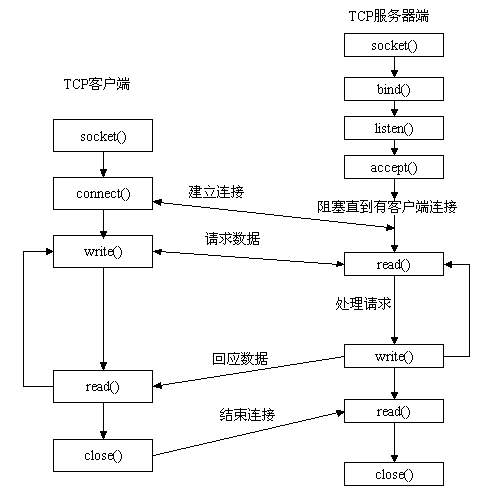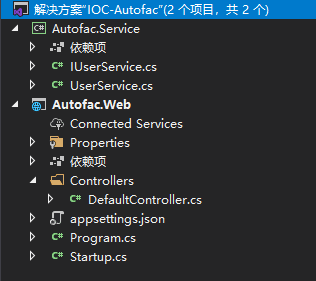前面介绍了六种.NET组件,其中有一种组件是写文件的压缩和解压,现在介绍另一种文件的解压缩组件SharpZipLib。在这个组件介绍系列中,只为简单的介绍组件的背景和简单的应用,读者在阅读时可以结合官网的相关介绍和在本地实际操作。
相关的组件功能非常强大,在笔者的介绍中只是提及到简单的应用,需要了解更多的操作和特性,可以根据官网介绍,或者查看DLL文件的相关类和方法,以此来扩展相关的业务需要。
SharpZipLib是一个完全在C#中为.NET平台编写的Zip,GZip,Tar和BZip2库。
一.SharpZipLib组件概述:
ziplib(SharpZipLib,以前的NZipLib)是一个完全在C#为.NET平台编写的Zip,GZip,Tar和BZip2库。它实现为一个程序集(可安装在GAC中),因此可以轻松地集成到其他项目(任何.NET语言)中。 #ziplib的创建者这样说:“我已经将zip库移植到C#,因为我需要gzip / zip压缩,我不想使用libzip.dll或类似的东西我想要的所有在纯C#“。
SharpZipLib官网提供的下载操作:.NET 1.1,.NET 2.0(3.5,4.0),.NET CF 1.0,.NET CF 2.0的装配:下载237 KB,源代码和示例下载708 KB;源代码和示例下载708 KB;帮助文件下载1208 KB;
SharpZipLib是在GPL下发布,遵守开源协议。
二.SharpZipLib核心类和方法介绍:
以上简单的介绍了SharpZipLib组件的相关背景,现在具体看一下该组件的相关核心类和方法:
1.ZipOutputStream类PutNextEntry():
public void PutNextEntry(ZipEntry entry)
{
bool hasCrc;
if (entry == null)
{
throw new ArgumentNullException("entry");
}
if (this.entries == null)
{
throw new InvalidOperationException("ZipOutputStream was finished");
}
if (this.curEntry != null)
{
this.CloseEntry();
}
if (this.entries.Count == 0x7fffffff)
{
throw new ZipException("Too many entries for Zip file");
}
CompressionMethod compressionMethod = entry.CompressionMethod;
int defaultCompressionLevel = this.defaultCompressionLevel;
entry.Flags &= 0x800;
this.patchEntryHeader = false;
if (entry.Size == 0L)
{
entry.CompressedSize = entry.Size;
entry.Crc = 0L;
compressionMethod = CompressionMethod.Stored;
hasCrc = true;
}
else
{
hasCrc = (entry.Size >= 0L) && entry.HasCrc;
if (compressionMethod == CompressionMethod.Stored)
{
if (!hasCrc)
{
if (!base.CanPatchEntries)
{
compressionMethod = CompressionMethod.Deflated;
defaultCompressionLevel = 0;
}
}
else
{
entry.CompressedSize = entry.Size;
hasCrc = entry.HasCrc;
}
}
}
if (!hasCrc)
{
if (!base.CanPatchEntries)
{
entry.Flags |= 8;
}
else
{
this.patchEntryHeader = true;
}
}
if (base.Password != null)
{
entry.IsCrypted = true;
if (entry.Crc < 0L)
{
entry.Flags |= 8;
}
}
entry.Offset = this.offset;
entry.CompressionMethod = compressionMethod;
this.curMethod = compressionMethod;
this.sizePatchPos = -1L;
if ((this.useZip64_ == UseZip64.On) || ((entry.Size < 0L) && (this.useZip64_ == UseZip64.Dynamic)))
{
entry.ForceZip64();
}
this.WriteLeInt(0x4034b50);
this.WriteLeShort(entry.Version);
this.WriteLeShort(entry.Flags);
this.WriteLeShort((byte) entry.CompressionMethodForHeader);
this.WriteLeInt((int) entry.DosTime);
if (hasCrc)
{
this.WriteLeInt((int) entry.Crc);
if (entry.LocalHeaderRequiresZip64)
{
this.WriteLeInt(-1);
this.WriteLeInt(-1);
}
else
{
this.WriteLeInt(entry.IsCrypted ? (((int) entry.CompressedSize) + 12) : ((int) entry.CompressedSize));
this.WriteLeInt((int) entry.Size);
}
}
else
{
if (this.patchEntryHeader)
{
this.crcPatchPos = base.baseOutputStream_.Position;
}
this.WriteLeInt(0);
if (this.patchEntryHeader)
{
this.sizePatchPos = base.baseOutputStream_.Position;
}
if (entry.LocalHeaderRequiresZip64 || this.patchEntryHeader)
{
this.WriteLeInt(-1);
this.WriteLeInt(-1);
}
else
{
this.WriteLeInt(0);
this.WriteLeInt(0);
}
}
byte[] buffer = ZipConstants.ConvertToArray(entry.Flags, entry.Name);
if (buffer.Length > 0xffff)
{
throw new ZipException("Entry name too long.");
}
ZipExtraData extraData = new ZipExtraData(entry.ExtraData);
if (entry.LocalHeaderRequiresZip64)
{
extraData.StartNewEntry();
if (hasCrc)
{
extraData.AddLeLong(entry.Size);
extraData.AddLeLong(entry.CompressedSize);
}
else
{
extraData.AddLeLong(-1L);
extraData.AddLeLong(-1L);
}
extraData.AddNewEntry(1);
if (!extraData.Find(1))
{
throw new ZipException("Internal error cant find extra data");
}
if (this.patchEntryHeader)
{
this.sizePatchPos = extraData.CurrentReadIndex;
}
}
else
{
extraData.Delete(1);
}
if (entry.AESKeySize > 0)
{
AddExtraDataAES(entry, extraData);
}
byte[] entryData = extraData.GetEntryData();
this.WriteLeShort(buffer.Length);
this.WriteLeShort(entryData.Length);
if (buffer.Length > 0)
{
base.baseOutputStream_.Write(buffer, 0, buffer.Length);
}
if (entry.LocalHeaderRequiresZip64 && this.patchEntryHeader)
{
this.sizePatchPos += base.baseOutputStream_.Position;
}
if (entryData.Length > 0)
{
base.baseOutputStream_.Write(entryData, 0, entryData.Length);
}
this.offset += (30 + buffer.Length) + entryData.Length;
if (entry.AESKeySize > 0)
{
this.offset += entry.AESOverheadSize;
}
this.curEntry = entry;
this.crc.Reset();
if (compressionMethod == CompressionMethod.Deflated)
{
base.deflater_.Reset();
base.deflater_.SetLevel(defaultCompressionLevel);
}
this.size = 0L;
if (entry.IsCrypted)
{
if (entry.AESKeySize > 0)
{
this.WriteAESHeader(entry);
}
else if (entry.Crc < 0L)
{
this.WriteEncryptionHeader(entry.DosTime << 0x10);
}
else
{
this.WriteEncryptionHeader(entry.Crc);
}
}
}
2.ZipOutputStream类Finish():
public override void Finish()
{
if (this.entries != null)
{
if (this.curEntry != null)
{
this.CloseEntry();
}
long count = this.entries.Count;
long sizeEntries = 0L;
foreach (ZipEntry entry in this.entries)
{
this.WriteLeInt(0x2014b50);
this.WriteLeShort(0x33);
this.WriteLeShort(entry.Version);
this.WriteLeShort(entry.Flags);
this.WriteLeShort((short) entry.CompressionMethodForHeader);
this.WriteLeInt((int) entry.DosTime);
this.WriteLeInt((int) entry.Crc);
if (entry.IsZip64Forced() || (entry.CompressedSize >= 0xffffffffL))
{
this.WriteLeInt(-1);
}
else
{
this.WriteLeInt((int) entry.CompressedSize);
}
if (entry.IsZip64Forced() || (entry.Size >= 0xffffffffL))
{
this.WriteLeInt(-1);
}
else
{
this.WriteLeInt((int) entry.Size);
}
byte[] buffer = ZipConstants.ConvertToArray(entry.Flags, entry.Name);
if (buffer.Length > 0xffff)
{
throw new ZipException("Name too long.");
}
ZipExtraData extraData = new ZipExtraData(entry.ExtraData);
if (entry.CentralHeaderRequiresZip64)
{
extraData.StartNewEntry();
if (entry.IsZip64Forced() || (entry.Size >= 0xffffffffL))
{
extraData.AddLeLong(entry.Size);
}
if (entry.IsZip64Forced() || (entry.CompressedSize >= 0xffffffffL))
{
extraData.AddLeLong(entry.CompressedSize);
}
if (entry.Offset >= 0xffffffffL)
{
extraData.AddLeLong(entry.Offset);
}
extraData.AddNewEntry(1);
}
else
{
extraData.Delete(1);
}
if (entry.AESKeySize > 0)
{
AddExtraDataAES(entry, extraData);
}
byte[] entryData = extraData.GetEntryData();
byte[] buffer3 = (entry.Comment != null) ? ZipConstants.ConvertToArray(entry.Flags, entry.Comment) : new byte[0];
if (buffer3.Length > 0xffff)
{
throw new ZipException("Comment too long.");
}
this.WriteLeShort(buffer.Length);
this.WriteLeShort(entryData.Length);
this.WriteLeShort(buffer3.Length);
this.WriteLeShort(0);
this.WriteLeShort(0);
if (entry.ExternalFileAttributes != -1)
{
this.WriteLeInt(entry.ExternalFileAttributes);
}
else if (entry.IsDirectory)
{
this.WriteLeInt(0x10);
}
else
{
this.WriteLeInt(0);
}
if (entry.Offset >= 0xffffffffL)
{
this.WriteLeInt(-1);
}
else
{
this.WriteLeInt((int) entry.Offset);
}
if (buffer.Length > 0)
{
base.baseOutputStream_.Write(buffer, 0, buffer.Length);
}
if (entryData.Length > 0)
{
base.baseOutputStream_.Write(entryData, 0, entryData.Length);
}
if (buffer3.Length > 0)
{
base.baseOutputStream_.Write(buffer3, 0, buffer3.Length);
}
sizeEntries += ((0x2e + buffer.Length) + entryData.Length) + buffer3.Length;
}
using (ZipHelperStream stream = new ZipHelperStream(base.baseOutputStream_))
{
stream.WriteEndOfCentralDirectory(count, sizeEntries, this.offset, this.zipComment);
}
this.entries = null;
}
}
3.ZipEntry类Clone():
public object Clone()
{
ZipEntry entry = (ZipEntry) base.MemberwiseClone();
if (this.extra != null)
{
entry.extra = new byte[this.extra.Length];
Array.Copy(this.extra, 0, entry.extra, 0, this.extra.Length);
}
return entry;
}
4.ZipOutputStream类Write():
public override void Write(byte[] buffer, int offset, int count)
{
if (this.curEntry == null)
{
throw new InvalidOperationException("No open entry.");
}
if (buffer == null)
{
throw new ArgumentNullException("buffer");
}
if (offset < 0)
{
throw new ArgumentOutOfRangeException("offset", "Cannot be negative");
}
if (count < 0)
{
throw new ArgumentOutOfRangeException("count", "Cannot be negative");
}
if ((buffer.Length - offset) < count)
{
throw new ArgumentException("Invalid offset/count combination");
}
this.crc.Update(buffer, offset, count);
this.size += count;
switch (this.curMethod)
{
case CompressionMethod.Stored:
if (base.Password != null)
{
this.CopyAndEncrypt(buffer, offset, count);
}
else
{
base.baseOutputStream_.Write(buffer, offset, count);
}
break;
case CompressionMethod.Deflated:
base.Write(buffer, offset, count);
break;
}
}
三.SharpZipLib实例:
1.压缩单个文件:
/// <summary>
/// 压缩单个文件
/// </summary>
/// <param name="fileToZip">要压缩的文件</param>
/// <param name="zipedFile">压缩后的文件</param>
/// <param name="compressionLevel">压缩等级</param>
/// <param name="blockSize">每次写入大小</param>
public static void ZipFile(string fileToZip, string zipedFile, int compressionLevel, int blockSize)
{
if (string.IsNullOrEmpty(fileToZip))
{
throw new ArgumentNullException(fileToZip);
}
if (string.IsNullOrEmpty(zipedFile))
{
throw new ArgumentNullException(zipedFile);
}
if (!File.Exists(fileToZip))
{
throw new FileNotFoundException("指定要压缩的文件: " + fileToZip + " 不存在!");
}
try
{
using (var zipFile = File.Create(zipedFile))
{
using (var zipStream = new ZipOutputStream(zipFile))
{
using (var streamToZip = new FileStream(fileToZip, FileMode.Open, FileAccess.Read))
{
var fileName = fileToZip.Substring(fileToZip.LastIndexOf("\\", StringComparison.Ordinal) + 1);
var zipEntry = new ZipEntry(fileName);
zipStream.PutNextEntry(zipEntry);
zipStream.SetLevel(compressionLevel);
var buffer = new byte[blockSize];
try
{
int sizeRead;
do
{
sizeRead = streamToZip.Read(buffer, 0, buffer.Length);
zipStream.Write(buffer, 0, sizeRead);
}
while (sizeRead > 0);
}
catch (Exception ex)
{
throw new Exception(ex.Message);
}
streamToZip.Close();
}
zipStream.Finish();
zipStream.Close();
}
zipFile.Close();
}
}
catch (IOException ioex)
{
throw new IOException(ioex.Message);
}
catch (Exception ex)
{
throw new Exception(ex.Message);
}
}
2. 压缩单个文件:
/// <summary>
/// 压缩单个文件
/// </summary>
/// <param name="fileToZip">要进行压缩的文件名</param>
/// <param name="zipedFile">压缩后生成的压缩文件名</param>
public static void ZipFile(string fileToZip, string zipedFile)
{
if (string.IsNullOrEmpty(fileToZip))
{
throw new ArgumentException(fileToZip);
}
if (string.IsNullOrEmpty(zipedFile))
{
throw new ArgumentException(zipedFile);
}
if (!File.Exists(fileToZip))
{
throw new FileNotFoundException("指定要压缩的文件: " + fileToZip + " 不存在!");
}
try
{
using (var fs = File.OpenRead(fileToZip))
{
var buffer = new byte[fs.Length];
fs.Read(buffer, 0, buffer.Length);
fs.Close();
using (var zipFile = File.Create(zipedFile))
{
using (var zipStream = new ZipOutputStream(zipFile))
{
var fileName = fileToZip.Substring(fileToZip.LastIndexOf("\\", StringComparison.Ordinal) + 1);
var zipEntry = new ZipEntry(fileName);
zipStream.PutNextEntry(zipEntry);
zipStream.SetLevel(5);
zipStream.Write(buffer, 0, buffer.Length);
zipStream.Finish();
zipStream.Close();
}
}
}
}
catch (IOException ioex)
{
throw new IOException(ioex.Message);
}
catch (Exception ex)
{
throw new Exception(ex.Message);
}
}
3.压缩多层目录:
/// <summary>
/// 压缩多层目录
/// </summary>
/// <param name="strDirectory">目录</param>
/// <param name="zipedFile">压缩文件</param>
public static void ZipFileDirectory(string strDirectory, string zipedFile)
{
if (string.IsNullOrEmpty(strDirectory))
{
throw new ArgumentException(strDirectory);
}
if (string.IsNullOrEmpty(zipedFile))
{
throw new ArgumentException(zipedFile);
}
using (var zipFile = File.Create(zipedFile))
{
using (var s = new ZipOutputStream(zipFile))
{
ZipSetp(strDirectory, s, "");
}
}
}
4.递归遍历目录:
/// <summary>
/// 递归遍历目录
/// </summary>
/// <param name="strDirectory">目录</param>
/// <param name="s">ZipOutputStream对象</param>
/// <param name="parentPath">父路径</param>
private static void ZipSetp(string strDirectory, ZipOutputStream s, string parentPath)
{
if (strDirectory[strDirectory.Length - 1] != Path.DirectorySeparatorChar)
{
strDirectory += Path.DirectorySeparatorChar;
}
var crc = new Crc32();
var filenames = Directory.GetFileSystemEntries(strDirectory);
try
{
// 遍历所有的文件和目录
foreach (var file in filenames)
{
// 先当作目录处理如果存在这个目录就递归Copy该目录下面的文件
if (Directory.Exists(file))
{
var pPath = parentPath;
pPath += file.Substring(file.LastIndexOf("\\", StringComparison.Ordinal) + 1);
pPath += "\\";
ZipSetp(file, s, pPath);
}
// 否则直接压缩文件
else
{
//打开压缩文件
using (var fs = File.OpenRead(file))
{
var buffer = new byte[fs.Length];
fs.Read(buffer, 0, buffer.Length);
var fileName = parentPath + file.Substring(file.LastIndexOf("\\", StringComparison.Ordinal) + 1);
var entry = new ZipEntry(fileName)
{
DateTime = DateTime.Now,
Size = fs.Length
};
fs.Close();
crc.Reset();
crc.Update(buffer);
entry.Crc = crc.Value;
s.PutNextEntry(entry);
s.Write(buffer, 0, buffer.Length);
}
}
}
}
catch (IOException ioex)
{
throw new IOException(ioex.Message);
}
catch (Exception ex)
{
throw new Exception(ex.Message);
}
}
5.解压缩一个 zip 文件:
/// <summary>
/// 解压缩一个 zip 文件。
/// </summary>
/// <param name="zipedFile">The ziped file.</param>
/// <param name="strDirectory">The STR directory.</param>
/// <param name="password">zip 文件的密码。</param>
/// <param name="overWrite">是否覆盖已存在的文件。</param>
public void UnZip(string zipedFile, string strDirectory, string password, bool overWrite)
{
if (string.IsNullOrEmpty(zipedFile))
{
throw new ArgumentException(zipedFile);
}
if (string.IsNullOrEmpty(strDirectory))
{
throw new ArgumentException(strDirectory);
}
if (string.IsNullOrEmpty(password))
{
throw new ArgumentException(password);
}
if (strDirectory == "")
{
strDirectory = Directory.GetCurrentDirectory();
}
if (!strDirectory.EndsWith("\\"))
{
strDirectory = strDirectory + "\\";
}
try
{
using (var s = new ZipInputStream(File.OpenRead(zipedFile)))
{
s.Password = password;
ZipEntry theEntry;
while ((theEntry = s.GetNextEntry()) != null)
{
var directoryName = string.Empty;
var pathToZip = theEntry.Name;
if (pathToZip != "")
{
directoryName = Path.GetDirectoryName(pathToZip) + "\\";
}
var fileName = Path.GetFileName(pathToZip);
Directory.CreateDirectory(strDirectory + directoryName);
if (fileName == "") continue;
if ((!File.Exists(strDirectory + directoryName + fileName) || !overWrite) &&
(File.Exists(strDirectory + directoryName + fileName))) continue;
using (var streamWriter = File.Create(strDirectory + directoryName + fileName))
{
var data = new byte[2048];
while (true)
{
var size = s.Read(data, 0, data.Length);
if (size > 0)
streamWriter.Write(data, 0, size);
else
break;
}
streamWriter.Close();
}
}
s.Close();
}
}
catch (IOException ioex)
{
throw new IOException(ioex.Message);
}
catch (Exception ex)
{
throw new Exception(ex.Message);
}
}
四.总结:
以上是对SharpZipLib组件的相关介绍,本文的讲解上比较的浅显,如果需要深入的学习可以进入官网进行详细的学习。组件的功能是很强大的,如何在项目中使用组件,完成我们在项目中需要实现的功能,这就是对每个开发者提出了要求,需要我们仔细的去考虑。
任何学习都需要我们自己去探索和思考,对于一个开发者来说,最重要的就是思考,因为在我们的职业生涯中,没有什么的重要性能够超过思考。如果有不足之处还望各位读者包含,并留言指正。
以上就是详解免费开源的.NET多类型文件解压缩组件SharpZipLib(.NET组件介绍之七)。成功者都是想尽一切办法往前走,哪怕是半步。更多关于详解免费开源的.NET多类型文件解压缩组件SharpZipLib(.NET组件介绍之七)请关注haodaima.com其它相关文章!





